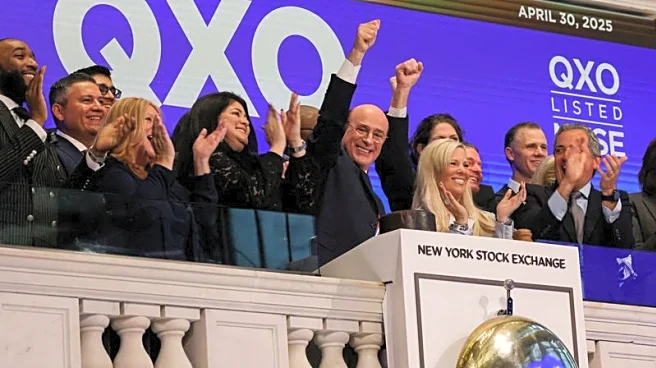What's Happening?
Kailera Therapeutics has successfully raised $600 million in series B funding to advance its weight-loss therapy pipeline. The funds will be used to launch a global Phase III program for KAI-9531, an investigational dual GLP-1/GIP receptor agonist. Kailera has completed end-of-Phase II meetings with the FDA and plans to start late-stage development by the end of the year. The program includes three studies: one targeting adults with a body mass index of at least 35 kg/m2, and two focusing on individuals with overweight or obesity with comorbidities, with and without type 2 diabetes. KAI-9531, originally developed by Jiangsu Hengrui Pharmaceuticals, demonstrated significant weight loss in a Phase III study in China, with an average reduction of 17.7% versus placebo at 48 weeks. Kailera also plans to develop an oral, once-daily formulation of KAI-9531.
Why It's Important?
The funding marks a significant milestone in the fight against obesity, a condition affecting millions in the U.S. and globally. Kailera's development of KAI-9531 and other assets could offer new treatment options for individuals struggling with obesity and related health issues. The investment reflects the growing interest and potential profitability in the obesity treatment market, as evidenced by recent acquisitions and partnerships by major pharmaceutical companies like Pfizer and Roche. Successful development and commercialization of these therapies could lead to improved health outcomes and reduced healthcare costs associated with obesity-related conditions.
What's Next?
Kailera plans to initiate late-stage development of KAI-9531 by year-end, with three studies targeting different patient groups. The company will also focus on developing other assets licensed from Jiangsu Hengrui, including KAI-7535 and KAI-4729, which are designed to treat obesity. The series B funding will support these efforts, although detailed timelines for these developments have not been disclosed. The success of these studies could lead to regulatory approval and commercialization, providing new treatment options for obesity.
Beyond the Headlines
The development of effective obesity treatments raises ethical and societal questions about access and affordability. As new therapies emerge, ensuring equitable access for all patients, regardless of socioeconomic status, will be crucial. Additionally, the focus on pharmaceutical solutions highlights the need for comprehensive approaches to obesity, including lifestyle changes and preventive measures.










